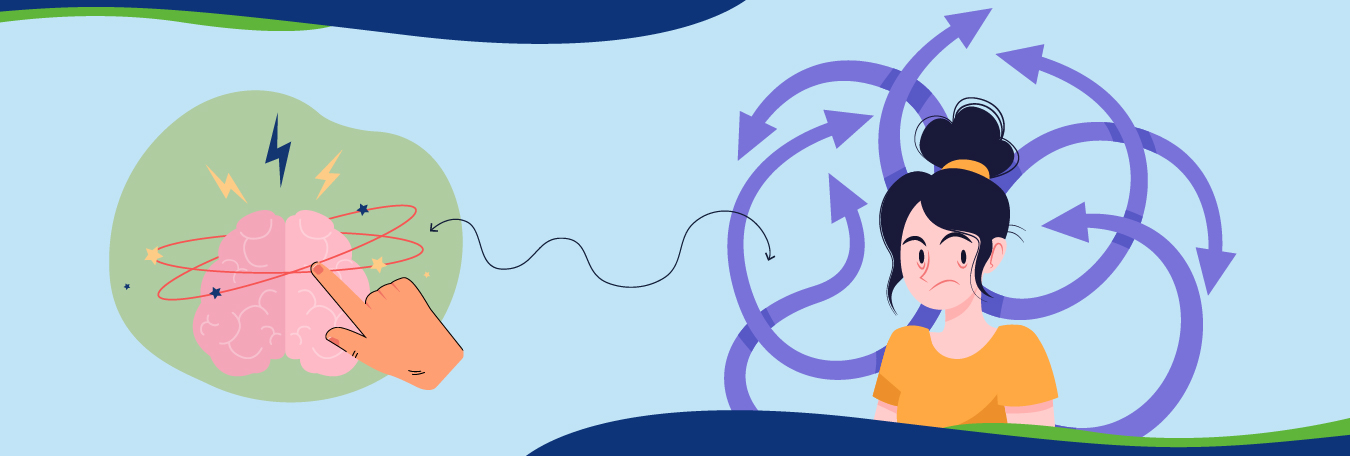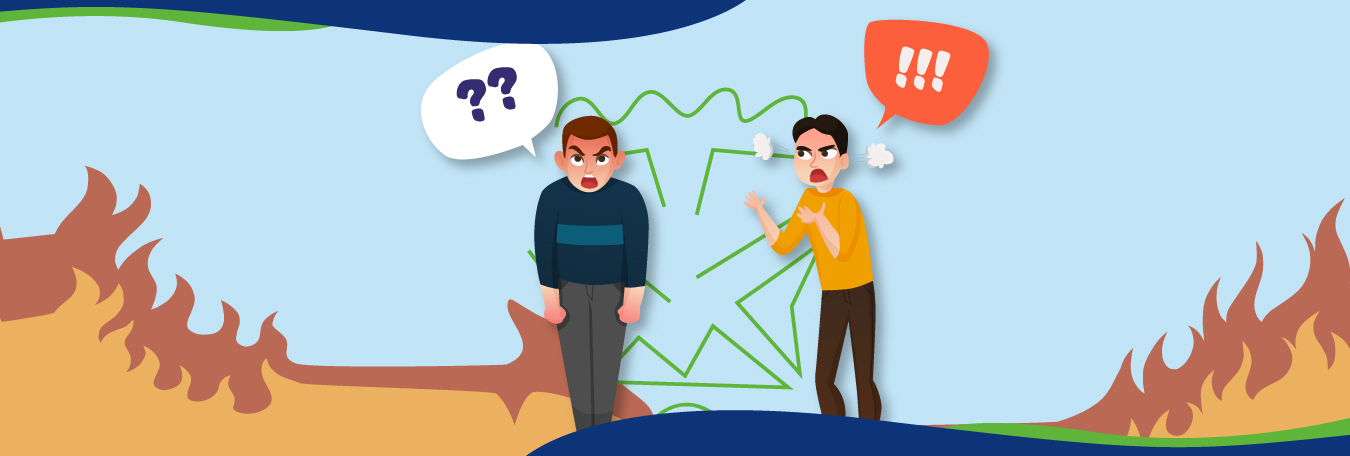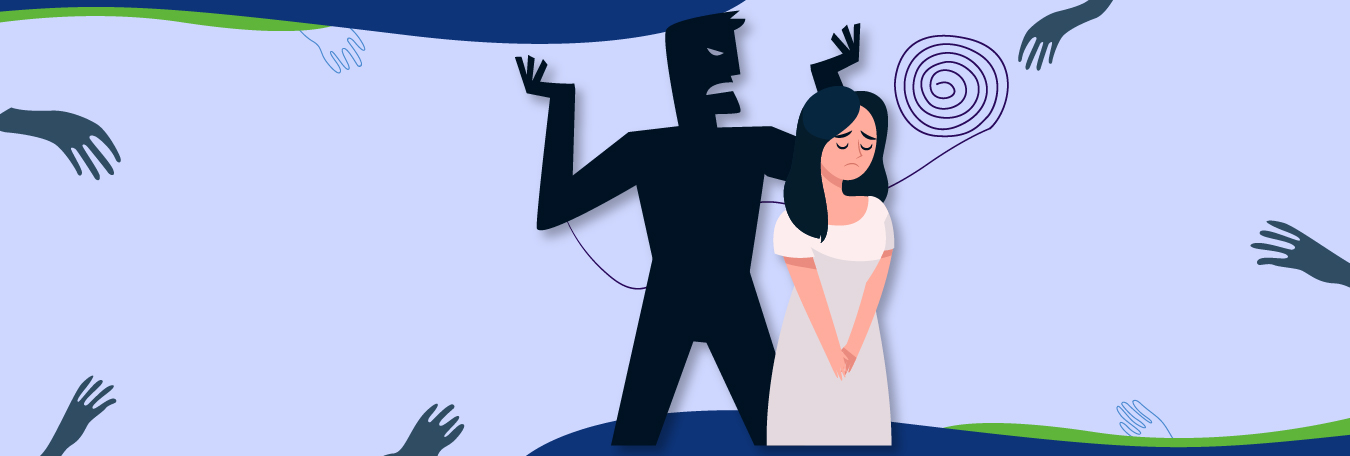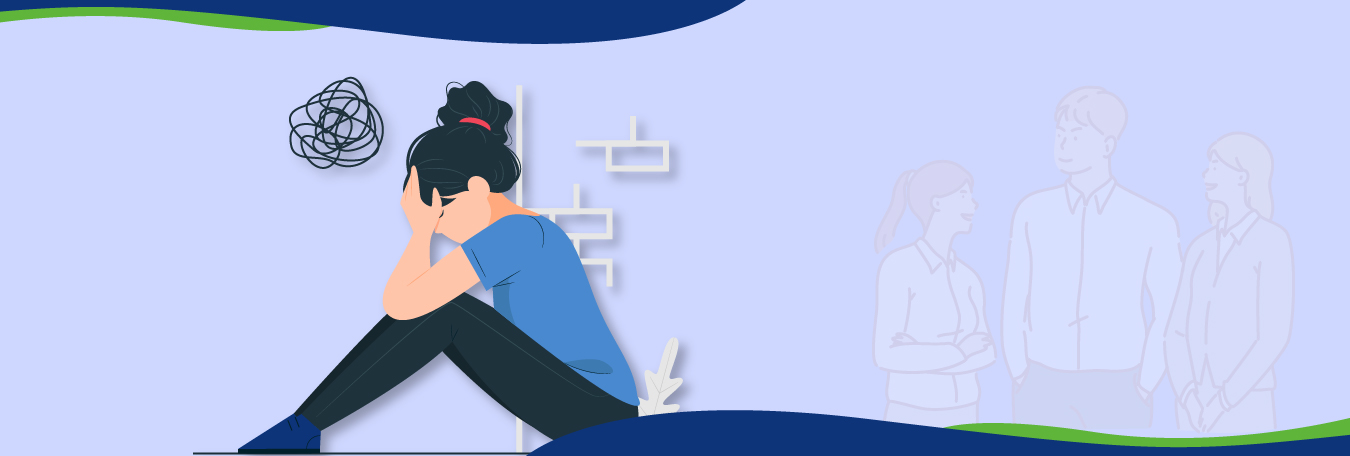We often consider staying hydrated important for physical health, like keeping our skin healthy and preventing muscle fatigue. But did you know that dehydration can also affect your mental health? Studies have shown that not drinking enough water can lead to anxiety. Moreover, less water intake can lead to various mental health illnesses such as bipolar disorder and depression.
In this blog post, we’ve explained how not drinking enough water can lead to anxiety, does drinking water help with anxiety, can being dehydrated cause anxiety, does water help with anxiety, and does dehydration cause anxiety. We’ve also discussed how to recognize dehydration and how to feel calmer.
What Is Dehydration?
Dehydration happens when you don’t drink enough water. Water is essential for regulating body temperature, transporting nutrients, removing waste, and keeping our cells, tissues, and organs healthy. When you’re dehydrated, your body struggles to perform these functions. This can lead to mild symptoms like a dry mouth and throat or more serious ones like confusion and dizziness.
Dehydration happens for various reasons:
- Not drinking enough water: For some reason, we sometimes do not remember to keep our body hydrated, or perhaps there is just too much going on in our lives. This can lead to adverse outcomes.
- Increased sweating: Daily activities, hot climates, exercise, or stress may lead to increased sweating rates and, therefore, require higher water intake.
- Illness: When you are sick and have a fever, mainly vomiting or diarrhea, you lose more fluids than you usually should.
- Excessive caffeine or alcohol: Alcohol and caffeine can be harmful; they make the body lose more fluids than it would normally.
Read More: Does Anxiety cause shortness of breath?
Learning About Anxiety And Its Signs
We all feel fear and stress sometimes, especially in stressful situations. But when anxiety is severe or long-lasting, it can interfere with our daily lives. Anxiety can cause both mental and physical symptoms, such as:
- Constant worrying
- Feelings of agitation or being anxious or edgy.
- Rapid heartbeat rate
- Difficulty focusing
- Muscle tension and headaches
- Gastric tract complications, for example, nausea or stomach ache
Anxiety doesn’t always have a specific cause. It can be caused by genetics, environment, past experiences, or even physical health issues. One physical factor is dehydration, which can contribute to anxiety even when it’s mild.

Connection Between Anxiety And Dehydration
Here is how dehydration can trigger or worsen anxiety signs:
-
Impact On Brain Function:
Our bodies are mostly made up of water, and we need water to function correctly. Not drinking enough water can affect our brain and our ability to think, concentrate, and remember things. It can also make us more irritable. If our brain doesn’t get enough water, it can be harder to manage stress, which can lead to anxiety.
-
Increase in Cortisol Levels:
Cortisol, a stress hormone, can make us feel more anxious. When we are dehydrated, our bodies release more cortisol to try to cope with the anxiety from dehydration. This can lead to higher cortisol levels, making us feel more anxious, alert, and restless, even when there’s nothing to worry about.
-
Physical signs similar to anxiety:
Dehydration anxiety shares several physical signs, such as:
- Rapid heart rate
- Dizziness
- Muscle cramps or weakness
- Nausea
These signs can result from dehydration and make you feel like you are in a stressed-out state or more anxious than you are.
-
Alterations of Blood Pressure and Pulse Rate
When we are dehydrated, our blood volume and blood pressure drop. This makes our heart work harder to pump blood around our body and causes anxiety dehydration. This can make us feel short of breath, which can feel similar to an anxiety or panic attack. If you’re already feeling anxious, this increased heart rate can trigger anxious thoughts, creating a cycle of stress and dehydration.
-
Depression or Apnea and Cognitive Function
Our nerves and muscles need electrolytes like sodium, potassium, and magnesium to work properly. We lose these electrolytes when dehydrated, leading to confusion, irritability, and muscle weakness. This can make us feel more stressed and anxious, making it harder to manage stress.
Read More: Itching and Anxiety: Can Anxiety Cause Itching?
Some Common Signs Of Dehydration
Due to rapid heart rate and breathing, which are part of anxiety, it’s critical to know when the body requires more fluid. Here are some common signs of dehydration to look out for:
- Thirst and dry mouth: As a rule, thirst is one of the initial symptoms.
- Headache: Headache comes from a dehydrated brain, and this, together with stress, could be detrimental to an individual.
- Dark yellow urine: Pale yellow or slightly colored urine indicates that your body is adequately hydrated, while dark-colored urine means the body is dehydrated.
- Fatigue and sluggishness: A lack of water leads to inadequate energy production within your body system, leading to weakness.
- Dizziness and lightheadedness: Dehydration actually lowers blood pressure and blood circulation to the brain.
Ways To Avoid Dehydration And Anxiety
Water intake returns you to optimum health, improved concentration, and better mood and helps keep your brain on track. Here are some tips to help you stay hydrated and potentially reduce anxiety:
-
Make Water a Habit
Start drinking water regularly, even if you don’t feel thirsty. Don’t skip breakfast, and try to drink some water in the morning. Sip water throughout the day to stay hydrated without feeling bloated.
-
Eat Hydrating Foods
Some foods, like fruits and vegetables, have a lot of water. Eating these foods, especially in the summer, can help you stay hydrated. Watermelons, cucumbers, oranges, and strawberries are good sources of vitamins and minerals that can help your body and mind function properly.
-
Limit Caffeine and Alcohol
Both caffeine and alcohol can make you dehydrated. So, it’s best to avoid them, especially if you’re prone to dehydration and anxiety attacks. But if you do drink coffee or alcohol, make sure to drink plenty of water as well.
-
Set Hydration Reminders
It’s easy to forget to drink water during the day. Set reminders on your phone or use a water bottle with measurements to help you track your water intake.
-
Listen to Your Body
Sometimes, people become dizzy, have headaches, or are irritable – this can also mean they need to drink water. These signals should be acknowledged and countered with water or other hydrating food.
-
Use the Deep Breathing and Relaxation Exercises
Dehydration can cause anxiety. Deep breathing can help reduce anxiety by calming the mind and increasing oxygen flow to the brain. Other relaxation techniques like meditation and progressive muscle relaxation can also be helpful.
-
Add Electrolytes if Needed
If you sweat a lot from exercise or hot weather, try adding electrolytes to your water. Coconut water, electrolyte tablets, or low-sugar sports drinks can replace minerals lost through sweat, which can help your body and brain function better.
What Amount Of Water Do We Need?
There is no exact amount of water everyone should drink, but it’s generally recommended to drink at least eight glasses a day. However, your water needs can vary depending on age, weight, activity level, and climate. In general:
- Listen to your body: Everyone should pay attention to thirst, which signals that the body needs water.
- Consider lifestyle factors: If you’re very active, spend a lot of time outdoors, or live in a hot climate, you’ll need to drink more water.
- Check your urine color: A transparent or light yellow color of urine is often a sign that you have been drinking enough water.
Read More: The Rise of Telehealth: Exploring the pros of telehealth
Conclusion:
Not drinking enough water can lead to many problems, including brain fog, mood swings, and anxiety. When dehydrated, your body releases stress hormones, your heart rate increases, and it becomes harder to focus. All of these things can make anxiety worse. You can improve your physical and mental health by drinking enough water throughout the day and month. One of the effective ways to treat dehydration-related anxiety is psychotherapy and psychiatric medication management for severe cases.
While drinking water won’t cure anxiety, it’s a simple way to help your body function better and handle stress. So, the next time you feel overwhelmed, try drinking some water. Your brain might thank you! So, if you are looking for superb telehealth services, Inland Empire Behavioral Group is your ideal choice.




